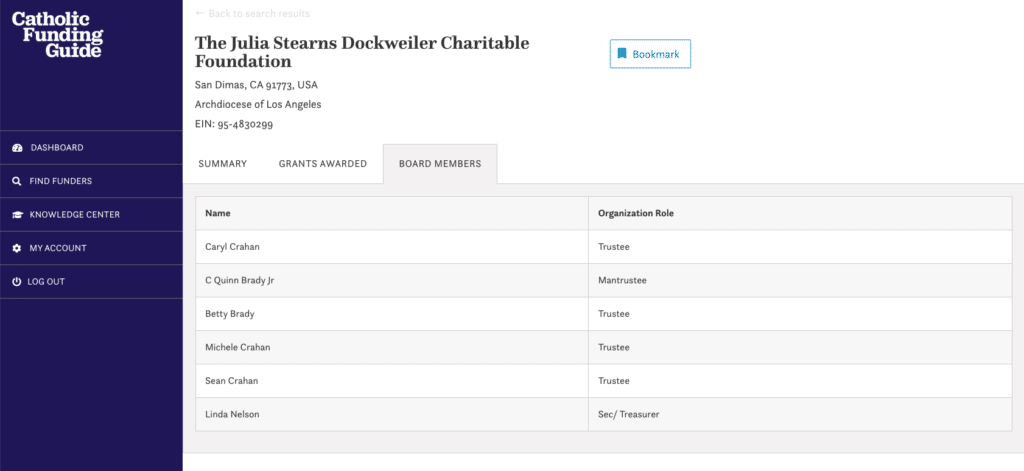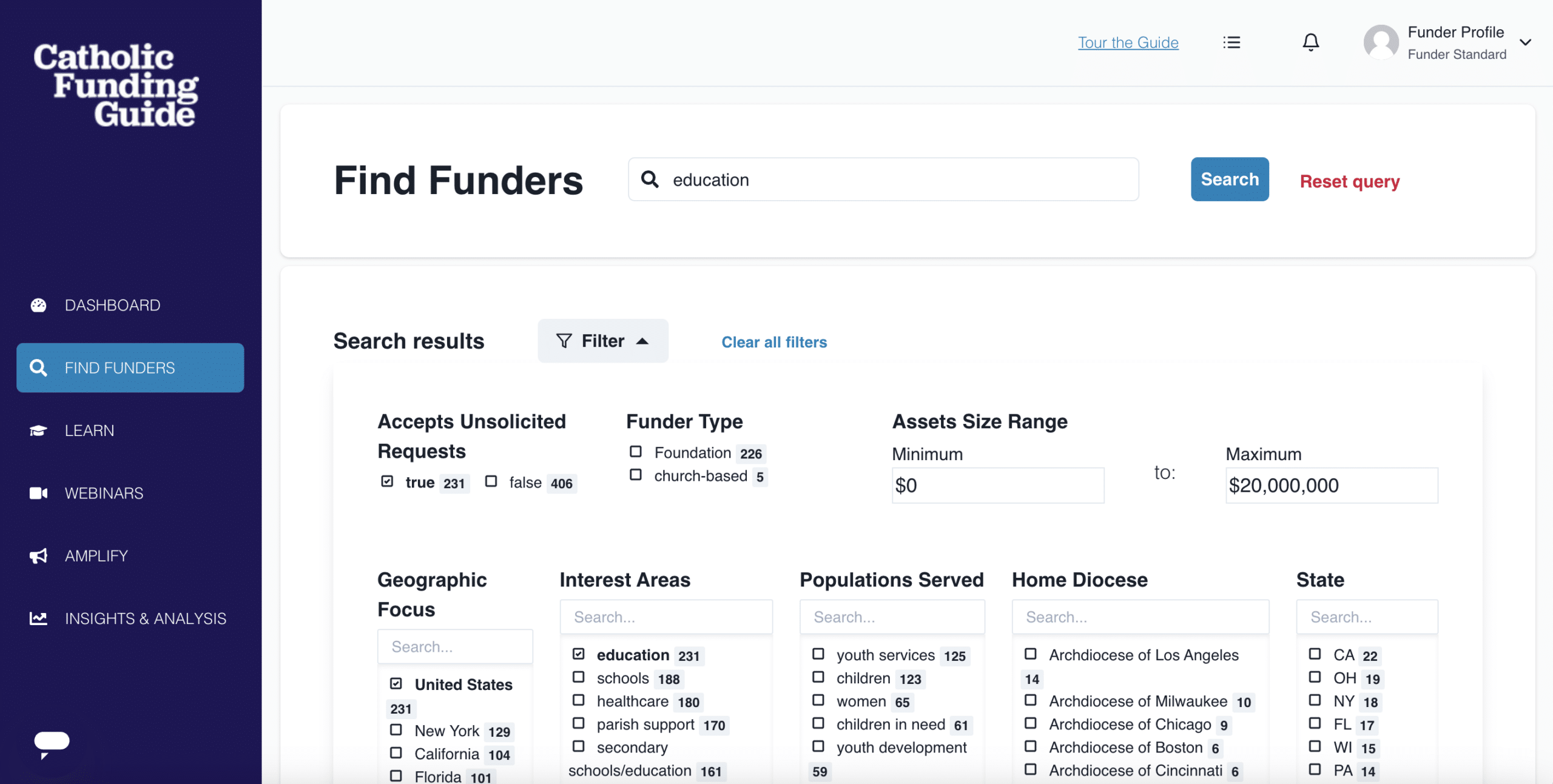Build Your Fundraising Team
In development circles, it’s often said that fundraising is a team sport; and with good reason. One person’s network and capabilities are inherently limited. As an essential function of most Catholic nonprofit organizations, fundraising is an activity in which all staff, volunteers, board members, and supporters can participate.
This does not mean that each of these individuals will be soliciting donations. However, by making it part of your organization’s culture to acknowledge the contributions of donors and the necessity of donations to sustaining your mission, you will equip your organization’s stakeholders to become advocates for your cause.
Grow Your Network Through a Fundraising Culture
In creating this culture of collaboration, it is especially important to involve your organization’s leadership. They are not only significant representatives of your organization, but they also likely have a network of connections that can benefit the organization.
Staff and other involved parties may hold some misconceptions about fundraising, so it is important to provide education and professional development. You may want to share a perspective of fundraising they have not encountered: that rather than begging, it is an invitation to participate in God’s work on earth!
Create a Fundraising Committee
Of course, it is unrealistic to expect people with different roles to become fundraising experts or devote themselves to development full-time, but having structure, with regular meetings and accountability, can help. For this reason, we recommend that you consider creating a fundraising committee with willing, eager, and realistic participants.
While you may be starting small, consider various types of committees that could benefit your organization. Does your organization have many senior volunteers? Consider creating a Senior-focused fundraising committee. If your organization attracts young adult involvement, consider a young professionals group. Targeting groups with the most potential for your organization will help you to reach other like-minded people who may be interested in advocating for and supporting your work.
Host Network-Building Events
One of the best ways to grow your network and connect with new donors is to interact with them, ideally face-to-face. When meeting in person is not possible, connecting virtually is a good option.
Generally it is best to host a variety of events to widen your appeal. Traditional fundraising events, such as hosting a gala, are popular because they are generally effective. Less traditional “friend-raising” events may appeal to those who are less familiar with your organization. Regardless of the type of event, you should strive to make these gatherings fun and encourage your current donors and volunteers to invite their families and friends.

While fundraising events should be enjoyable, they should primarily focus on introducing new people to your cause and sharing the impact that donors to your organization can make. It is important to let current and former donors know the difference they made as well.
Connecting with Donors through Virtual Events
If you are hosting a virtual event, give extra attention to what will draw new people to attend. It can be helpful to ask the following questions:
- What would provide value for attendees?
- Is there a particular area in which your organization is an expert and could host an informative webinar?
- Do you have an exciting announcement that will make a significant impact in your community?
- Place yourself in the position of someone who is supportive of your mission but doesn’t know much about your organization. What would make them want to attend?
Whether you hold an in-person or virtual event, your plan to follow up with attendees is just as important as the event itself. Make sure you develop a strategy in advance to connect with those who attended, especially if they are new to your organization. Ideally this would include a personal communication such as a phone call, handwritten note, or email.
Leverage Your Connections to Improve Grant Seeking
Grantseeking can be a complicated process for fundraising professionals, and each funder operates in a unique way. While many funders publicly share their decision-making process, others are harder to discern. For this reason, it is useful to identify any potential connections your network may have with funders prior to submitting a grant request or letter of inquiry.
The Catholic Funding Guide simplifies the grantseeking process by including, when possible, the names of those associated with each funding source, such as board members and staff.

From there, you can consult with your own leadership team and board of directors to discover any potential connections. You can also use LinkedIn to see how your network may be connected with the funder.
Discovering connections and initiating encounters through your network can help you establish a meaningful relationship with the funder so that you can gain additional insights into the inner workings of the foundation, enabling you to better prepare your LOI or grant proposal.
Growing your network to connect with new donors requires dedicated effort. However, taking the time to develop additional relationships and equip your organization’s staff and volunteers to support fundraising can bring about long-lasting and significant growth. The Catholic Funding Guide is glad to support you in your fundraising efforts!



